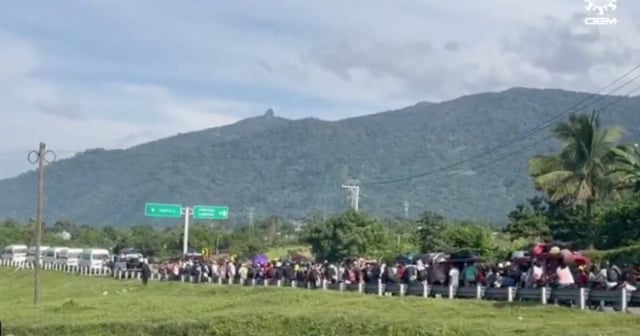Cuban-American Congressman Mario Díaz-Balart outlined the strategies that, in his view, Donald Trump will implement during his second presidential term regarding the regimes of Cuba and Venezuela.
In a recent interview with journalist Mario J. Pentón (Martí Noticias), Díaz-Balart predicted a "dramatic change" for Díaz-Canel and Maduro, which he specified should have them feeling anxious already.
The legislator emphasized that these measures will focus on tightening policies towards both dictatorships, as well as the strict enforcement of immigration laws in the United States.
A strict approach to Cuba: “They will not be allowed to play with the pain of the people.”
Díaz-Balart emphasized that the Trump administration will implement a "dramatic change" in the relationship with Cuba, asserting that the Cuban regime will not be allowed to use resources to "harm the United States and oppress its own people."
"There will be a dramatic change. It will not be accepted that this regime uses all available means to harm the United States and oppress its own people," the congressman stated.
He also criticized the current administration's policy under Joe Biden for granting visas to individuals linked to the Cuban regime, calling it a violation of U.S. laws.
"Those people must be packing their bags because they will not be able to keep the visas obtained illegally," he warned.
He also emphasized that Trump will not tolerate international allies providing support to Havana or any threats to national security originating from the island.
More pressure on Venezuela: “Trump took a clear stance”
The congressman also addressed the situation in Venezuela, stating that Trump will intensify sanctions against Nicolás Maduro's regime and extend support to the opposition.
"Trump was the first world leader to recognize the Venezuelan opposition at the time, taking a clear stance against the dictatorship," emphasized Díaz-Balart.
He strongly criticized the Biden administration's delay in recognizing the results of the elections won by the Venezuelan opposition, emphasizing that the next Republican government will adopt a firmer policy in support of democratic values.
Díaz-Balart added that stricter measures will be imposed on countries or entities that support the Venezuelan or Cuban regime, aiming to limit their ability to operate in the region.
Migration Review: Deportation of Criminals and Repressors
One of the highlights mentioned by the congressman was the future Trump administration's approach to immigration.
According to Díaz-Balart, the deportation of individuals with criminal records and those connected to repressive regimes will be prioritized.
In particular, he mentioned cases of prosecutors and judges who sentenced peaceful protesters from July 11, 2021, in Cuba, who now reside in the United States.
"Those people are here because President Biden ignored the law. But under Trump, there will be strict enforcement. The law is clear: they cannot be granted visas or allowed entry into the United States," he stated.
He also criticized the Humanitarian Parole program, which, according to him, allowed the entry of individuals linked to the Cuban regime in violation of immigration regulations.
A message for America's enemies: "If you're feeling nervous, it's because you should be."
Díaz-Balart delivered a strong message to those he views as adversaries of the United States.
“If you are nervous, it’s because you have reason to be. This administration will enforce the law and will not allow further violations of immigration regulations,” he stated.
The congressman emphasized that Trump's approach not only aims to strengthen national security but also to ensure that U.S. laws are strictly enforced.
According to Díaz-Balart, this hardening represents a commitment to democratic values and a defense of human rights in countries subjected to authoritarian regimes.
Filed under:
